
Copernical Team
NASA's CAPSTONE probe suffers anomaly, put in safe mode
 NASA's CAPSTONE probe has experienced a problem on its journey to the moon, and is now in a protective safe mode, the space agency confirmed.
NASA and its private partner Advanced Space issued the update Monday, after what they referred to as an anomaly.
"This is a dynamic operational situation," Colorado-based Advanced Space said in a statement.
"During or shortly after t
NASA's CAPSTONE probe has experienced a problem on its journey to the moon, and is now in a protective safe mode, the space agency confirmed.
NASA and its private partner Advanced Space issued the update Monday, after what they referred to as an anomaly.
"This is a dynamic operational situation," Colorado-based Advanced Space said in a statement.
"During or shortly after t Video: Ariane 6 launchpad testing
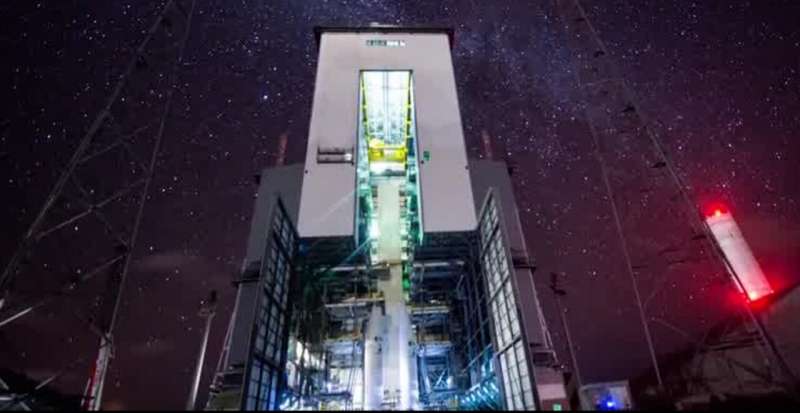
It has been an exciting and busy summer for the European Space Agency, with development and testing of its new Ariane 6 launcher.
At Europe's spaceport in, French Guiana, a test model of the launcher's central core was assembled for the first time.
Ariane 6 is the first Ariane rocket to be assembled horizontally, which is simpler and less costly than more traditional vertical assembly. After assembly, the rocket was moved to its launchpad and placed upright in the massive mobile gantry for combined tests, to validate the compatibility between all components of the complete launch system.
Soon more testing will be done on Ariane 6's upper stage at a purpose-built DLR facility in Lampoldshausen, Germany.
Explore further
The future of space exploration – ESA at IAC 2022
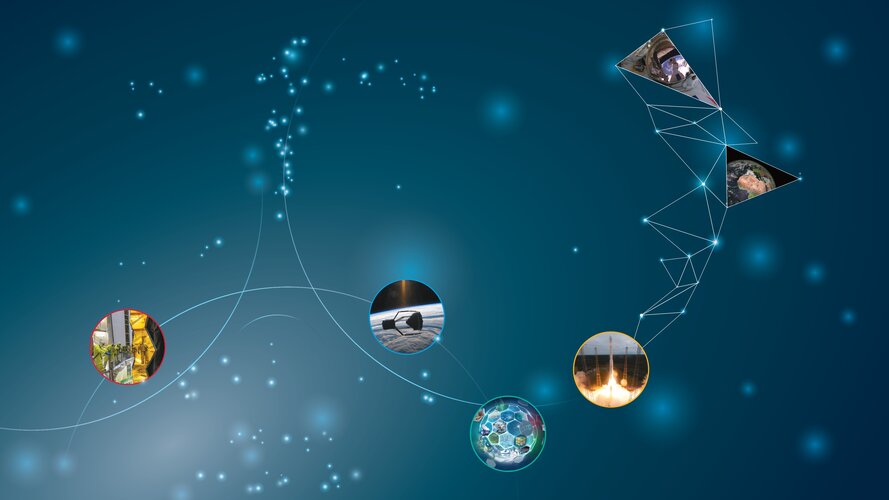
Join us at the ESA stand at the 73rd International Astronautical Congress (IAC 2022), taking place from 18 to 22 September at the Paris Convention Centre in Paris. A week of lively interactions awaits the world space community, this year under the theme 'Space for @ll'. The congress will open its doors to the general public on 21 September.
Harpoons, robots and lasers: How to capture defunct satellites and other space junk and bring it back to Earth
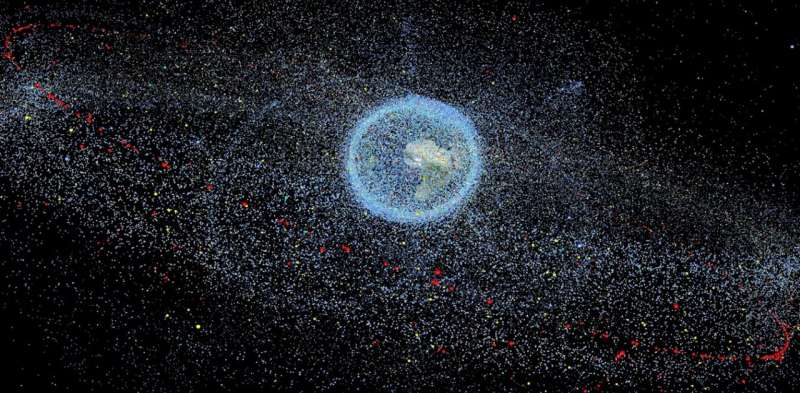
More than half of the thousands of satellites in orbit are now defunct, and this accumulation of floating space debris has been described as a "fatal problem" for current and future space missions and human space travel.
An estimated 130 million objects smaller than 1cm and 34,000 larger than 10cm are traveling in orbit at speeds of thousands of kilometers per hour, according to the European Space Agency (ESA). A report presented at this year's European conference on space debris suggests the amount of space junk could increase fifty-fold by 2100.
While many fragments of space junk are small, they travel so fast their impact has enough energy to disable a satellite or cause significant damage to space stations.
Both the Hubble Telescope and the Solar Maximum Mission (SMM) satellites had coin-sized holes punched into them by flying debris and a mirror on Nasa's James Webb space telescope was damaged by micrometeoroids.
Most satellites were not designed with the end of their usefulness in mind.
Where do high-energy particles that endanger satellites, astronauts and airplanes come from?
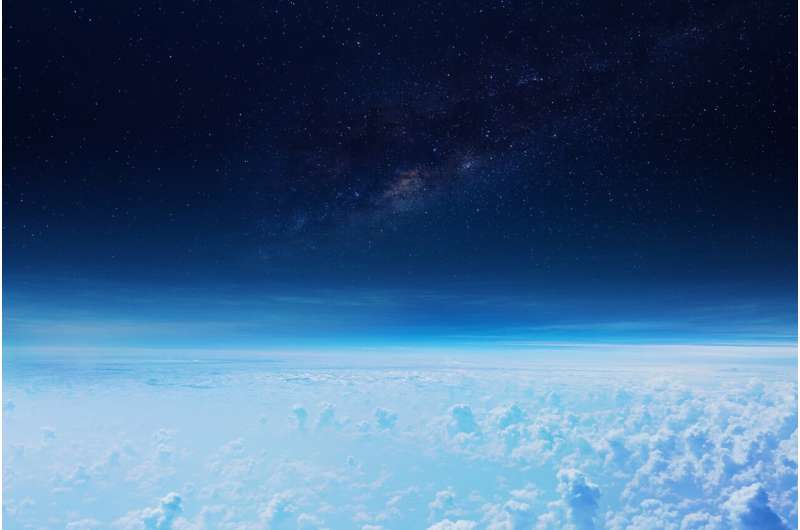
For decades, scientists have been trying to solve a vexing problem regarding the weather in outer space: At unpredictable times, high-energy particles bombard the Earth and objects outside the Earth's atmosphere with radiation that can endanger the lives of astronauts and destroy satellites' electronic equipment. These flare-ups can even trigger showers of radiation strong enough to reach passengers in airplanes flying over the North Pole. Despite scientists' best efforts, a clear pattern of how and when flare-ups will occur has remained enduringly difficult to identify.
This week, in a paper in The Astrophysical Journal Letters, authors Luca Comisso and Lorenzo Sironi of Columbia's Department of Astronomy and the Astrophysics Laboratory, have used supercomputers to simulate when and how high-energy particles are born in turbulent environments like that on the atmosphere of the sun. This new research paves the way for more accurate predictions of when dangerous bursts of these particles will occur.
"This exciting new research will allow us to better predict the origin of solar energetic particles and improve forecasting models of space weather events, a key goal of NASA and other space agencies and governments around the globe," Comisso said.
ESA Boost! for RFA One Launch Services
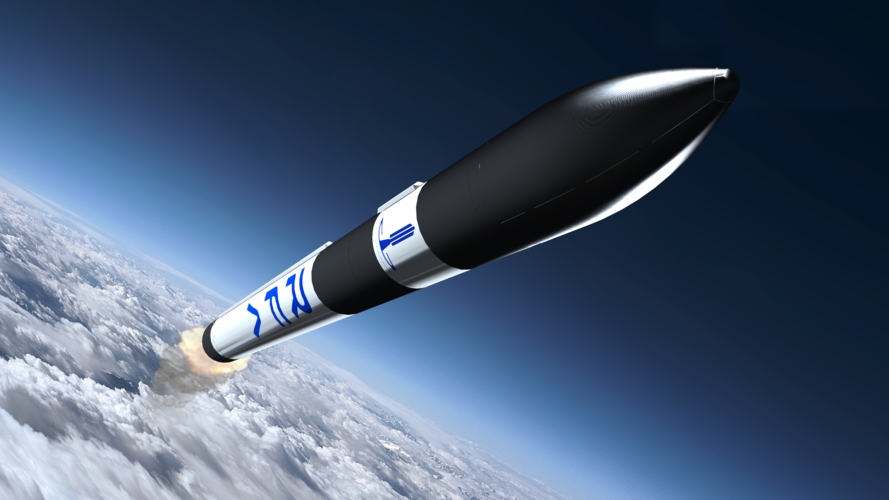
Rocket Factory Augsburg (RFA), a German startup developing the three-stage RFA One orbital launch vehicle designed to operate at a high cadence, has received a contract worth €11.72 m from ESA's Boost! commercial space transportation services programme.
Ariane 5 launches Europe’s tallest communication satellite
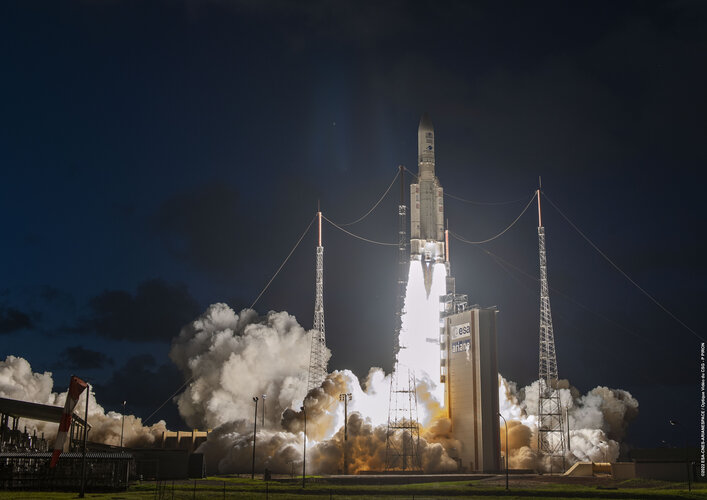
The fourth Spacebus Neo satellite to benefit from ESA’s Neosat programme has launched into space on board the second Ariane 5 launch mission of 2022.
First Eurostar Neo satellite ready to ship
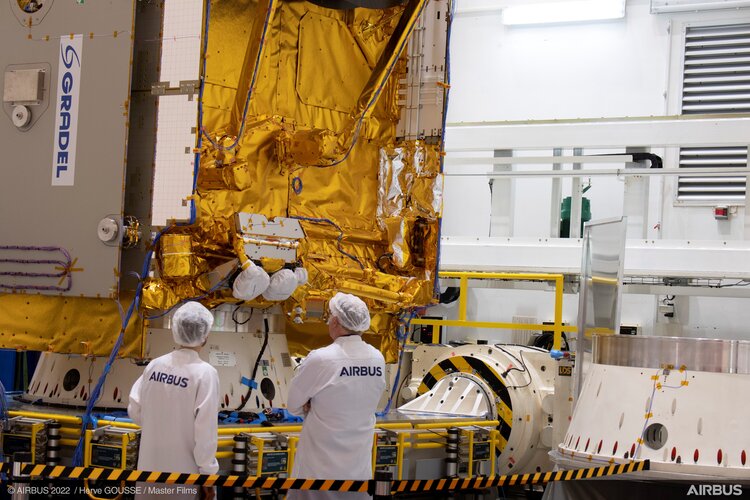
The first satellite to be built under ESA’s Eurostar Neo programme stands ready to be shipped to its launch site.
Media invitation: International Astronautical Congress 2022 in Paris
Press Release N° 46–2022
The International Astronautical Congress 2022 (IAC) will be hosted in Paris, France, from Sunday to Thursday, 18-22 September 2022, at the Paris Convention Centre (1 place de la Porte de Versailles, 75015 Paris).
Spaceflight signs with NewSpace India to launch Astrocast IoT satellite into orbit
 Spaceflight, the leading global launch services provider, has announced it will launch four Astrocast 3U spacecraft aboard India's Polar Satellite Launch Vehicle (PSLV) mission under a commercial arrangement with NewSpace India Limited (NSIL). This mission, scheduled for October 2022, will launch from Sriharikota, India's Satish Dhawan Space Center, carrying the Astrocast spacecraft as a co-pass
Spaceflight, the leading global launch services provider, has announced it will launch four Astrocast 3U spacecraft aboard India's Polar Satellite Launch Vehicle (PSLV) mission under a commercial arrangement with NewSpace India Limited (NSIL). This mission, scheduled for October 2022, will launch from Sriharikota, India's Satish Dhawan Space Center, carrying the Astrocast spacecraft as a co-pass 